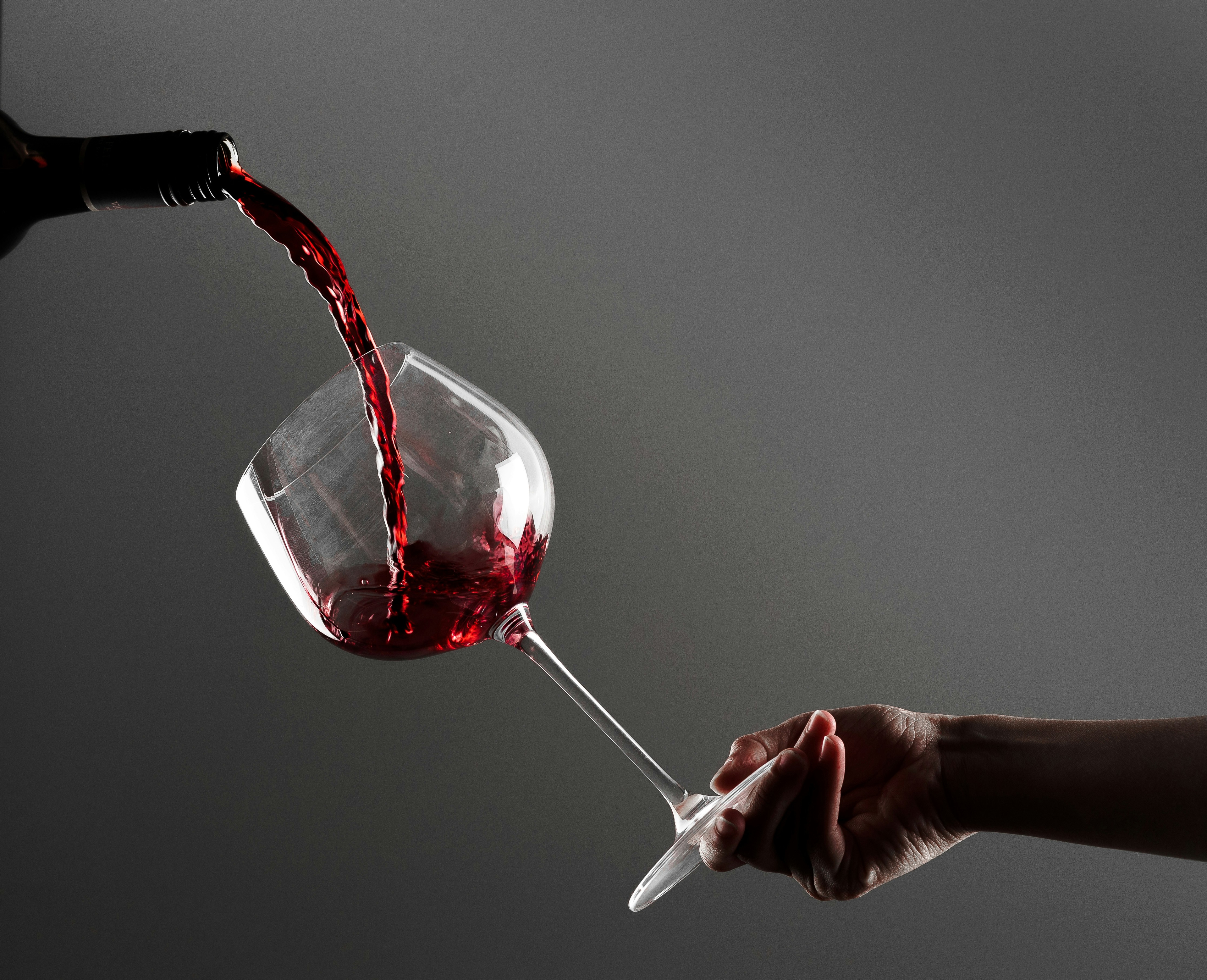
Madeira wine, an island nectar
Discover Madeira wine, an island nectar renowned for its history, unique grape varieties, and guided tastings !
The island of Madeira, also known as “the island of flowers”, is renowned for its stunning volcanic landscapes, lush gardens, and mild climate throughout the year. But one of the island’s most celebrated treasures is undoubtedly its wine! This island nectar has captivated the world for centuries. Long regarded as a prestigious wine, it embodies the history, craftsmanship, and culture of Madeira. Discovering Madeira wine is also a way to understand the island’s soul and the passion of its people for viticulture.
A millennial history
Madeira wine did not emerge by chance! Introduced to the island in the 15th century by the first Portuguese settlers, it quickly found the ideal terroir for production. The island’s unique climate, with mild temperatures and Atlantic humidity, combined with rich volcanic soils, allowed the cultivation of suitable grape varieties and the creation of a wine capable of withstanding long sea voyages.
Historically, Madeira wine was exported to Europe and the Americas, particularly to England and the United States, where it was highly prized by aristocrats and explorers. It even accompanied major maritime expeditions and played a significant role in the island’s commercial history.
What makes Madeira wine so unique ?
Madeira wine stands out for its exceptional resistance to oxidation and ageing. Unlike many other wines, it can be stored for decades without losing quality. This remarkable trait is due to the “estufagem” heating process, in which the wine is gently heated to mimic the conditions experienced during sea voyages.
The island’s emblematic grape varieties
Sercial : a dry, light wine, perfect for aperitifs, served chilled.
Verdelho : slightly sweeter, ideal for accompanying savoury dishes.
Bual : rich and sweet, often enjoyed as a dessert wine.
Malmsey (or Malvasia) : the sweetest and most aromatic, a true nectar for lovers of sweet wines.
Each variety reflects Madeira’s unique terroir, as well as the island’s maritime and volcanic influence, offering a complex and refined palette of flavours.
Tasting Madeira wine, a sensory experience
Tasting Madeira wine is not just about savouring a wine; it is a journey through centuries and the island’s landscapes. Aromas can range from caramel and dried fruits to spices and floral notes, depending on the type of wine and ageing process.
Traditionally, dry wines are served slightly chilled, while sweeter wines are served at room temperature. They pair wonderfully with chocolate desserts, mature cheeses, or can simply be enjoyed alone as a moment of pure contemplation.
Some wineries offer guided tastings, where each sip is accompanied by explanations about the terroir, grape varieties, and the wine’s history. It is a full immersion into Madeiran culture, both educational and delicious.
Wineries and wine routes
Madeira has several historic wineries and estates, mainly around Funchal and in more remote valleys.
Blandy’s : one of the oldest wine houses, offering guided tours and exceptional tastings.
Henriques & Henriques : renowned for wines aged for several decades.
Pereira d’Oliveira : combining tradition and modernity in wine production and presentation.
Visiting these wineries also allows one to discover the island’s history, colonial architecture, and unique landscapes, often perched on hills overlooking the ocean. Some wine routes combine hiking, winery visits, and tastings in a single day, offering a full sensory experience.
Madeira wine in local culture and life
Beyond its gastronomic dimension, Madeira wine is deeply rooted in the island’s culture. It accompanies celebrations, weddings, and local festivals and is often given as a gift on special occasions.
Madeirans are proud of this heritage and pass down their knowledge from generation to generation. Even in modern gastronomy, Madeira wine continues to inspire chefs, who use it in sauces, desserts, or to flambé dishes, adding a unique island touch to their cuisine.
Practical tips for exploring Madeira wine
Best time to visit : spring and autumn, for pleasant weather and beautiful landscapes.
Getting around the island : renting a car is the most convenient way to explore vineyards and wineries.
Participate in a tasting : opt for guided tours to learn about grape varieties, ageing processes, and the history of the estates.
Buying authentic wine : choose local wineries or specialist shops to take home an original, high-quality bottle, a perfect souvenir !
Why Madeira wine is worth discovering ?
Madeira wine is more than just a gastronomic product; it is an invitation to travel through time and explore the island’s culture and terroir. Its aromatic richness, fascinating history, and longevity make every bottle a true treasure. Whether you are a wine enthusiast, a history lover, or simply curious about unique Atlantic flavours, Madeira wine will captivate and transport you.
Discovering Madeira wine is an unforgettable sensory and cultural journey, where tradition, craftsmanship, and modernity meet in the heart of a volcanic islet in the middle of the ocean.
Share this article
Suggested articles
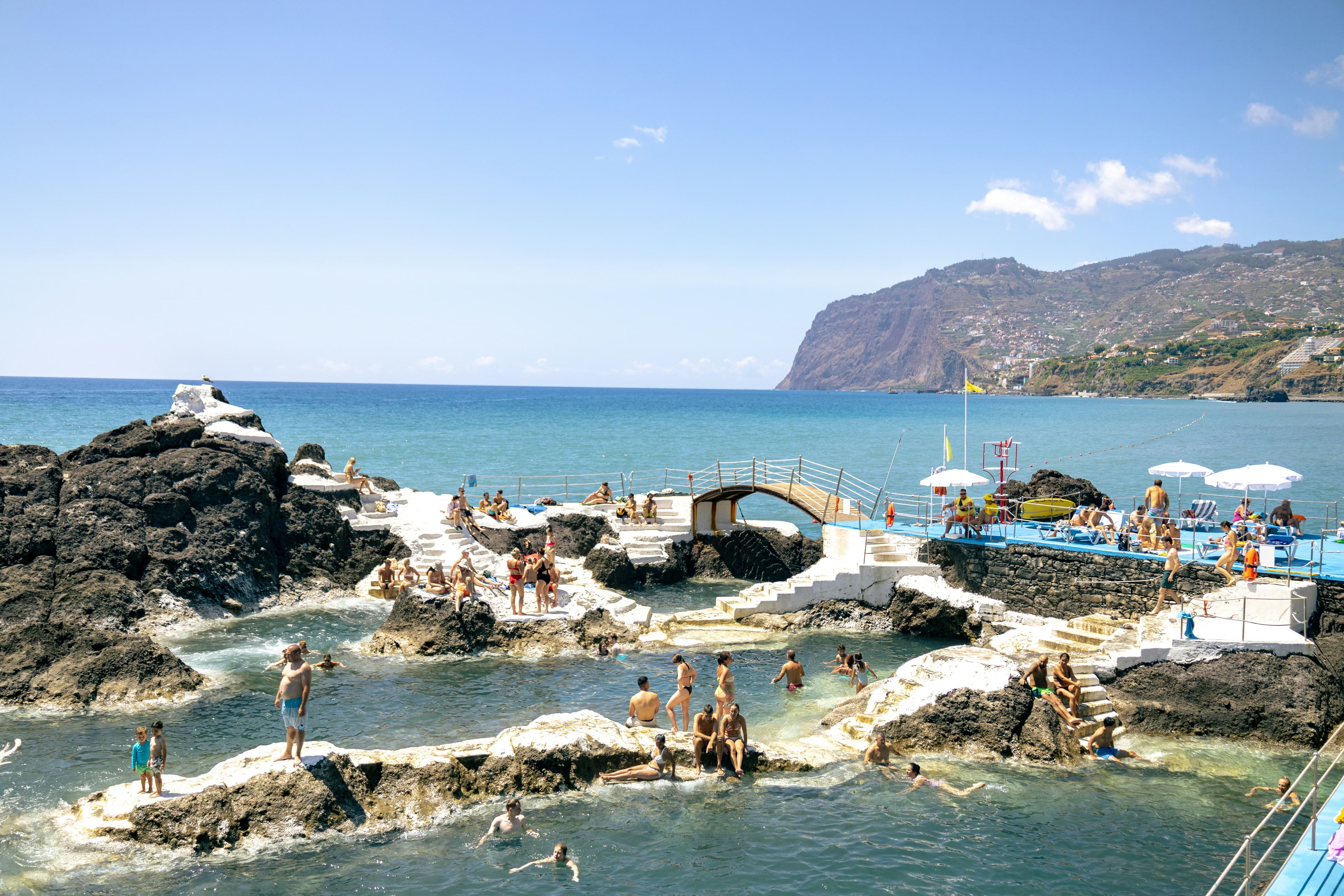
Funchal, traditions and modernity
Located on the island of Madeira, Funchal embodies the very soul of the island ! In this city, the capital of the archipelago, tradition and modernity coexist harmoniously : colourful markets, cobbled streets, and historic buildings sit alongside modern infrastructure, including luxury hotels and contemporary museums. Funchal is not just a city; it is a complete experience where every visitor can immerse themselves in Madeiran culture, history, and lifestyle while enjoying the island’s modern and tourist attractions. We guide you through the city, its iconic neighbourhoods, gastronomy, cultural events, and practical tips for an unforgettable visit!
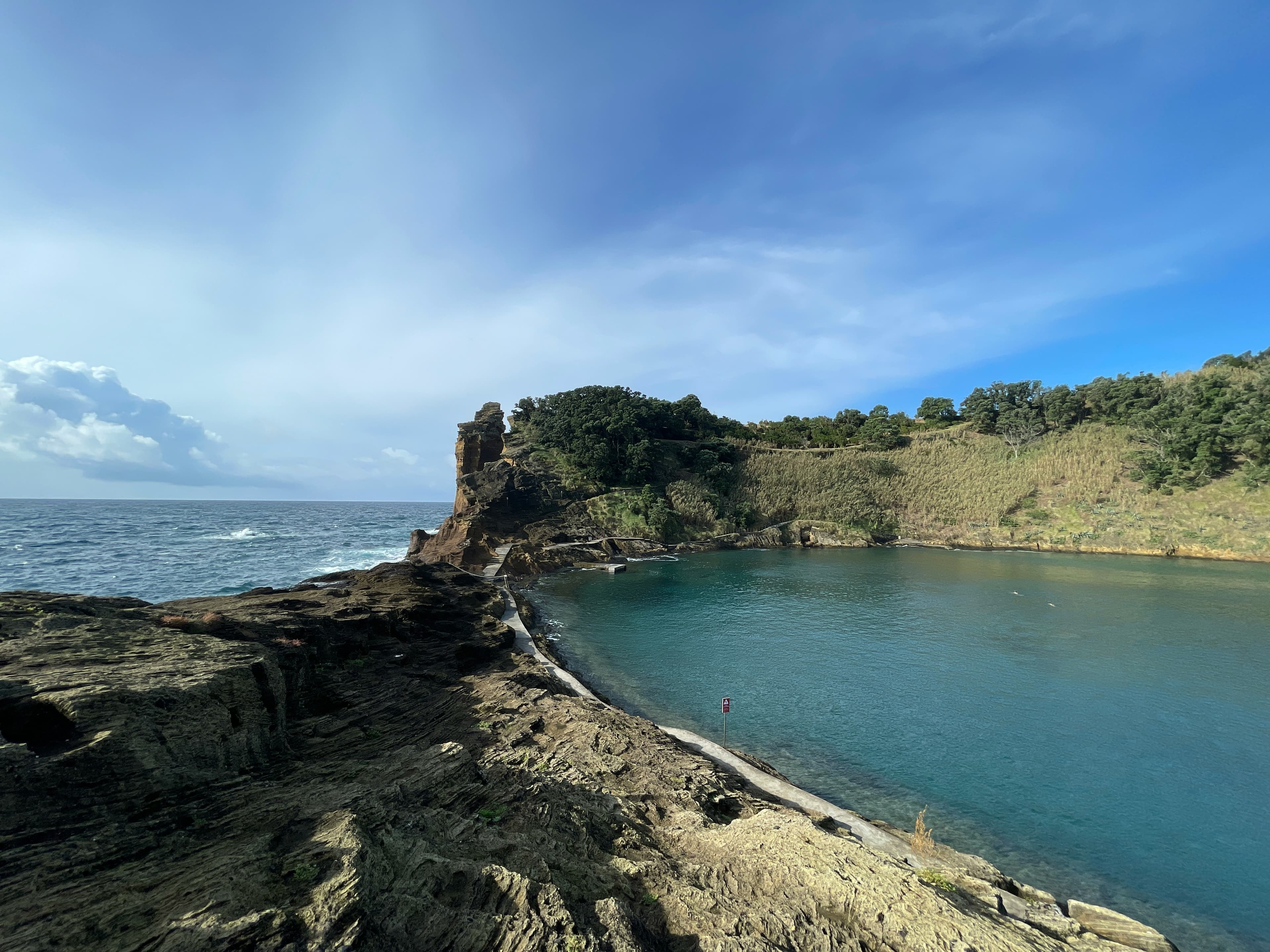
Volcanic lakes of São Miguel
The island of São Miguel, in the Azores, is renowned for its spectacular volcanic landscapes and breathtaking panoramas! Among its natural treasures, the volcanic lakes hold a special place: they embody the serene power of nature, offering visitors a stunning display of colours and tranquillity, as well as unique experiences in hiking, contemplation, and discovery… a complete journey ! These lakes are a must-visit to fully understand the geology and beauty of São Miguel.
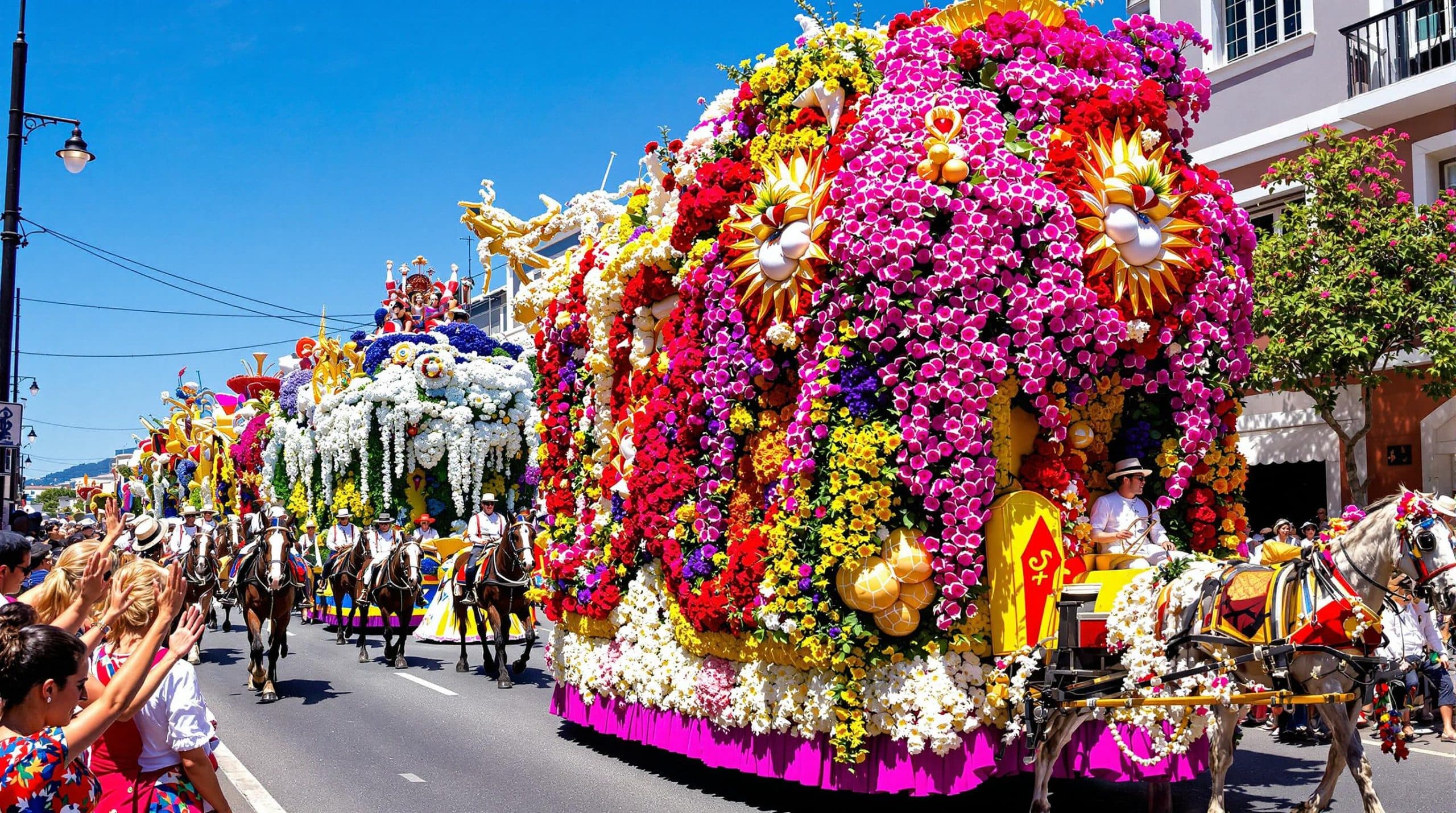
Flower festivals and island folklore in Madeira
The “island of flowers” is not only famous for its spectacular volcanic landscapes and lush gardens! Every spring, the administrative capital, Funchal, transforms into a vibrant, colourful showcase thanks to the flower festival ! This event celebrates nature, creativity and local traditions, and it would not be complete without the island’s folklore, which accompanies every parade, dance and performance!
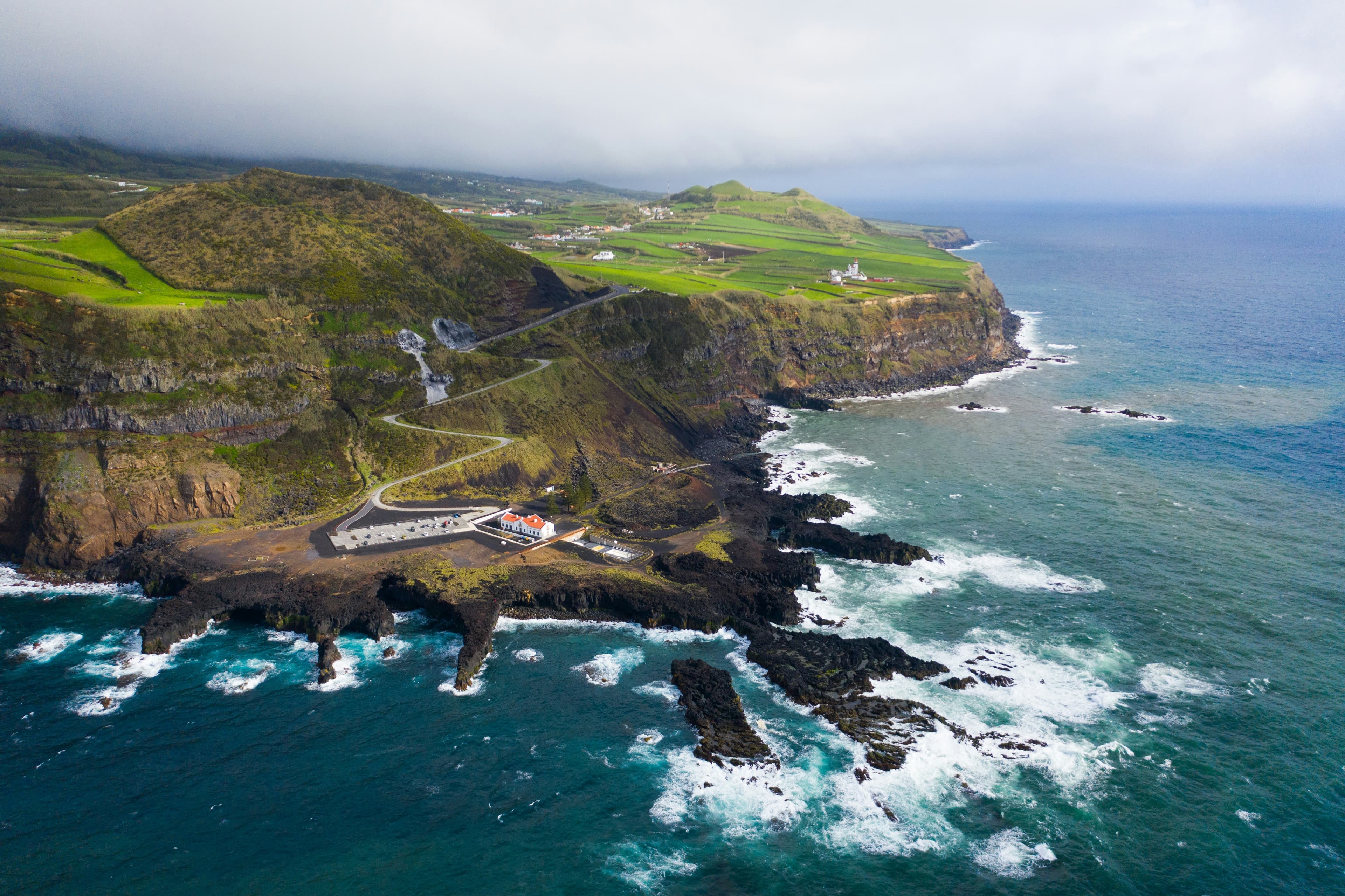
Ponta Delgada, gateway to the Azores
Located on the island of São Miguel, in the heart of the Azores archipelago, Ponta Delgada is much more than just a city : it is the true gateway to this group of volcanic islands lost in the middle of the Atlantic! With its charming colourful houses, historic churches and lively harbour, Ponta Delgada is the entrance to a spectacular natural world, where crater lakes, hot springs and steep cliffs offer breathtaking views…
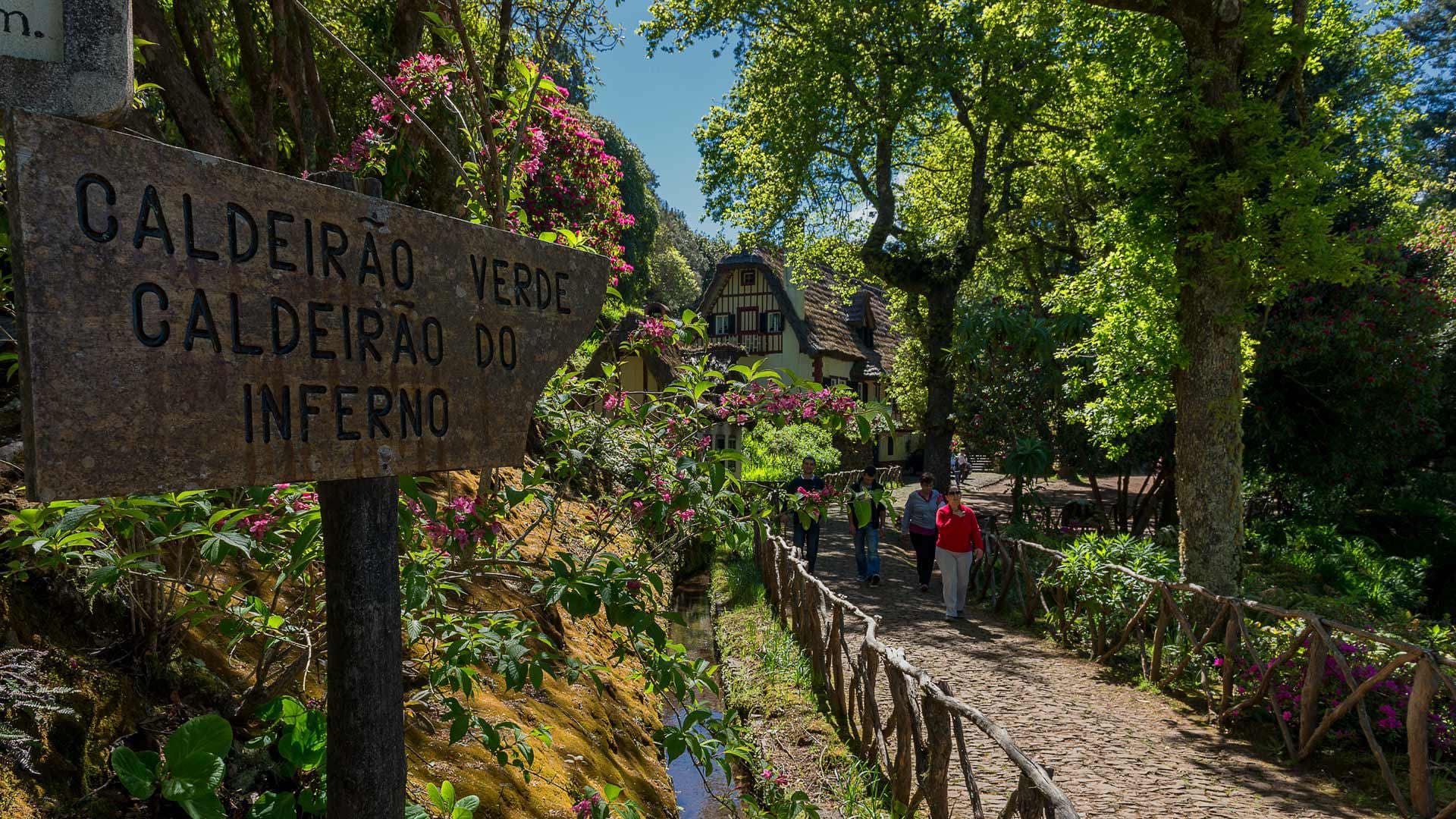
Hiking in Madeira, the Island of Hanging Trails
Madeira, this jewel of the Atlantic, is not nicknamed “the Island of Flowers” for nothing ! Between rugged cliffs, lush forests, and breathtaking ocean views, Madeira offers hikers a playground like no other. Every path tells a story, every levada (traditional irrigation channel) leads to awe-inspiring scenery, and every summit reveals the island’s wild beauty. Whether you’re a casual walker or a seasoned adventurer, hiking in Madeira is an unforgettable experience blending adventure, contemplation, and cultural immersion.
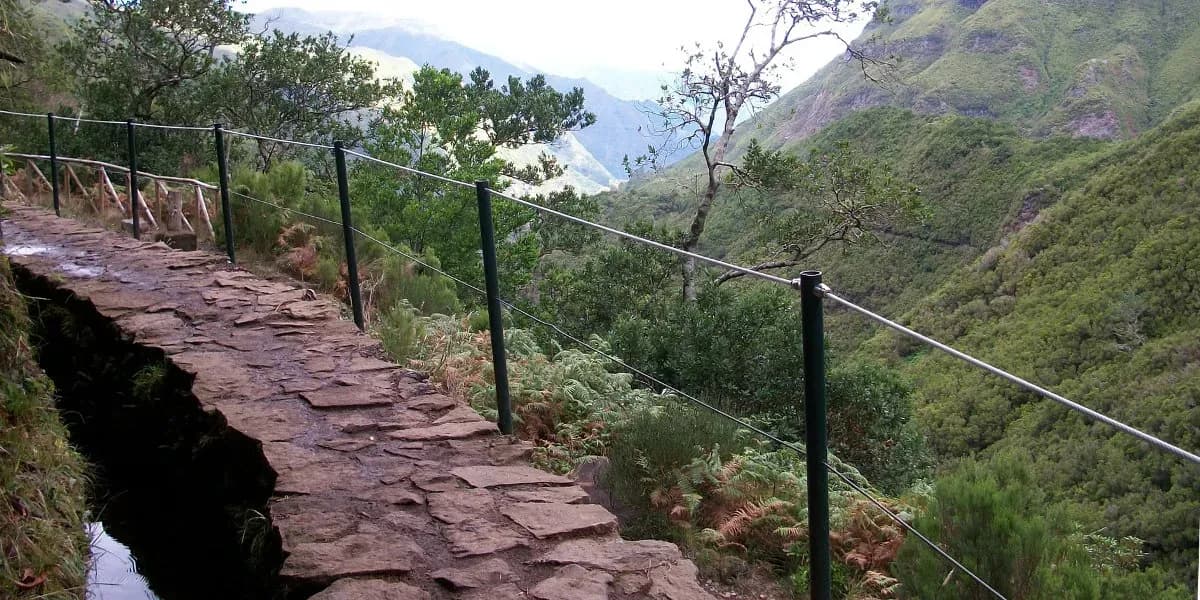
The levadas of Madeira: treasures of hydraulic engineering
On the “island of flowers”, green mountains, deep valleys and misty forests hide a fascinating network that has wound its way across the island for more than five centuries : the levadas.


